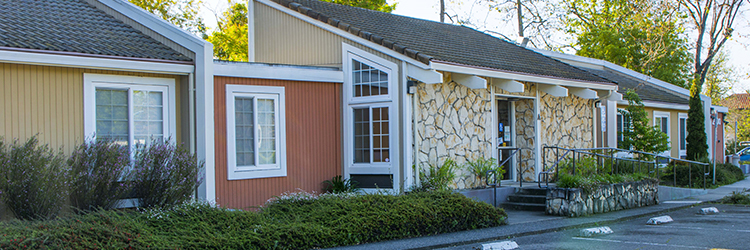Day Reporting Center

The Day Reporting Center (DRC) is a service center for adults on Probation and staffed by Deputy Probation Officers and other Probation staff who work in collaboration with service providers. Programming at the DRC follows the Risk-Need-Responsivity (RNR) model and is designed to reduce reoffending by working on issues connected with criminal behavior, and by increasing stability. Research shows programs that follow the RNR model are effective at helping people stay out of trouble with the law. The key assumption at the DRC is that if we do an excellent job of providing programs that fit within RNR, people who participate will reoffend less. The DRC uses well-tested screening and assessment tools to learn what kinds of programming participants need and to measure their progress.
To address a variety of needs, the DRC provides several high-quality programs and services, and is open during extended hours to meet the scheduling needs of participants.
Classes taught include:
- Cognitive Behavioral Interventions (CBI) – Provides tools and insights on the thought-behavior link and teaches communication skills to support success in the community.
- Advanced Practices (AP) – An advanced component to the CBI curriculum. Provides the ability to practice using the tools learned in CBI in everyday life and current situations.
- Aggression Replacement Training (ART) – This curriculum consists of three components: Skill Streaming, Anger Control, and Moral Reasoning. Group sessions teach participants to notice triggers and cues of a heightened emotional response, along with skills to reduce the risky emotion and think about the results of choices in these situations.
- Outpatient Substance Abuse – The Matrix curriculum is provided by Alcohol and Drug Counselors employed by the California Human Development (CHD) program.
- Positive Parenting Program (Triple P) – A program with a variety of topics that give parents skills to manage the big and small problems of family life. These classes are provided by the Child Parent Institute (CPI).
Other services available include:
- JobLink – One-on-one sessions and workshops to prepare participants for employment. Assistance is available for creating a resume, overcoming various employment barriers, and gaining job skills.
- Eligibility Services – With assistance from an Eligibility Worker, participants can apply for public assistance programs including Medi-Cal and CalFresh (food stamps), obtaining a California ID card and assistance with various Social Security related issues.
- Santa Rosa Junior College (SRJC) – Participants can meet with an SRJC counselor at the DRC for help with enrolling in classes, and learn about the opportunity to join the Second Chance Club located on the SRJC campus. Assistance in applying for grants and other financial assistance is also available.
- Sober Living Environment (SLE) – Participants have access to SLEs funded by the Probation Department.
Bus Passes are available for participants when transportation is a barrier to their participation.